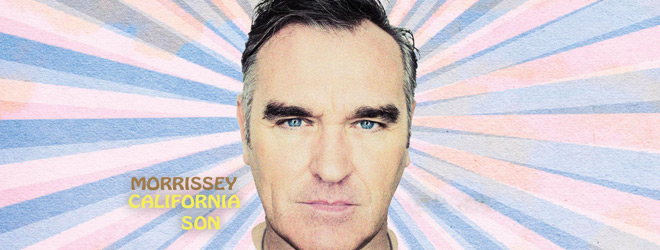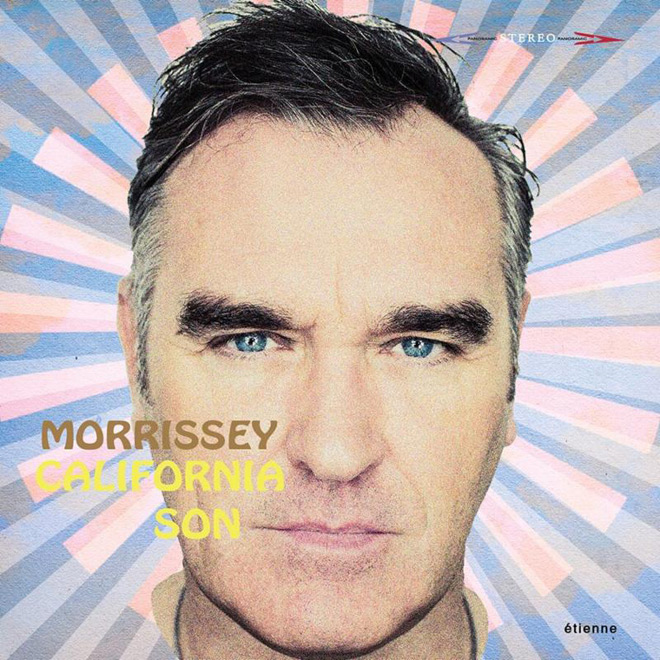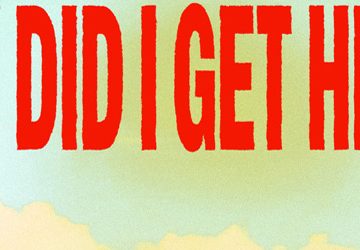
This is the challenging case faced by outspoken artists such as Morrissey, who has been known also for his over-the-top pronouncements that sometimes border on the absurd or on questionable political values. Many critics and listeners could not see through his music past these façade. But then, if what one after is really the music, then just simply ignore all these nonmusical aspects of the artist (or any artist for that matter). After all, music—in its purest sense—is only the instrumentation, the rhythm, the melodies, and the lyrics—the basic elements that move the listener when listening to it. That all in mind, Morrissey returns on Friday, May 24th with his new album California Son via BMG Records.
Born on May 22, 1959, in Davyhulme, Lancashire, England, Morrissey is known as the vocalist of the legendary band The Smiths, whose activity spanned from 1983 to 1987. Soon after the breakup of the group, he embarked on a solo career, releasing his debut album, the successful Viva Hate, in 1988 and carving an enduring path and quite polarizing status for himself primarily because of his stout and often-barbed political views. Ten albums more followed, from 1991’s Kill Uncle to the aforementioned California Son.
An all-covers affair, California Son opens with Morrissey’s subtle and mellifluous take on “Morning Starship” – a ’70s song by the Bowie/Jagger-inspired American artist Jobriath. This is followed by another smooth and graceful track—a rather flowing, syrupy version of Joni Mitchell’s “Don’t Interrupt the Sorrow.” Then there is the grand, big sound of the originally acoustic Folk protest song “Only Pawn in Their Game” by Bob Dylan.
Thereafter, “Suffer the Little Children” is an improvement of another Folk song; this time by the Canadian-American/First Nations singer-songwriter Buffy Sainte-Marie. Morrissey has really long developed the art of picking up a good, obscure song and then making it compelling and better. Phil Ochs’ inspired song “Days of Decision” then reverberates brightly with Morrissey’s impassioned approach.
Morrissey then turns even more melodramatic with his nostalgia-filled, string-orchestrated, and falsetto-flavored rendition of Roy Orbison’s “It’s Over.” Then following next is one of the album’s highlight—the slightly upbeat single “Wedding Bell Blues,” which interestingly features on backing vocals Billie Joe Armstrong of Green Day. Galloping afterwards is the horn-filled “Loneliness Remembers What Happiness Forgets”—a song by Burt Bacharach and Hal David which they could have written for Morrissey himself if the equally adorable and contemptible singer were already existent in the scene in the 1960s.
This is before future classic “Lady Willpower” emerges as California Sons’ favorite son—sunny, sprightly, and grand with its string and horn ornamentation. And then there is “When You Close Your Eyes”—another heartwarming ballad worthy of ballroom blitz. Then with the slow, piano-laden “Lenny’s Tune,” Morrissey returns his listener once again to his favorite place—that which is dark and gloomy, fit for brooding and moping. Finally, the satirical wordsmith wraps up his latest musing aptly with the equally sardonic dirge of “Some Say I Got Devil.” Yes, Morrissey indeed still got his devilish smirk and sharp wit, enough to still court controversy, curiosity, and adoration—for better or for worse. He’s the same ol’ Morrissey, what can you do?—the master of mope, the messenger of miserableness, and still the charming man for many.
Despite all odds, Morrissey continues to make well-woven music; and this should be enough to give the fiery provocateur gladioli of credit. Just never mind his latest political pronouncements. After all, music fans should be in all this because of the music and not for his ideologies and antics. California Son is another proof that the great wordsmith does not fail to leave his unmistakable stamp even if the album consists of covers of other artists’ songs. This is why Cryptic Rock gives California Son 4 out of 5 stars.







No comment